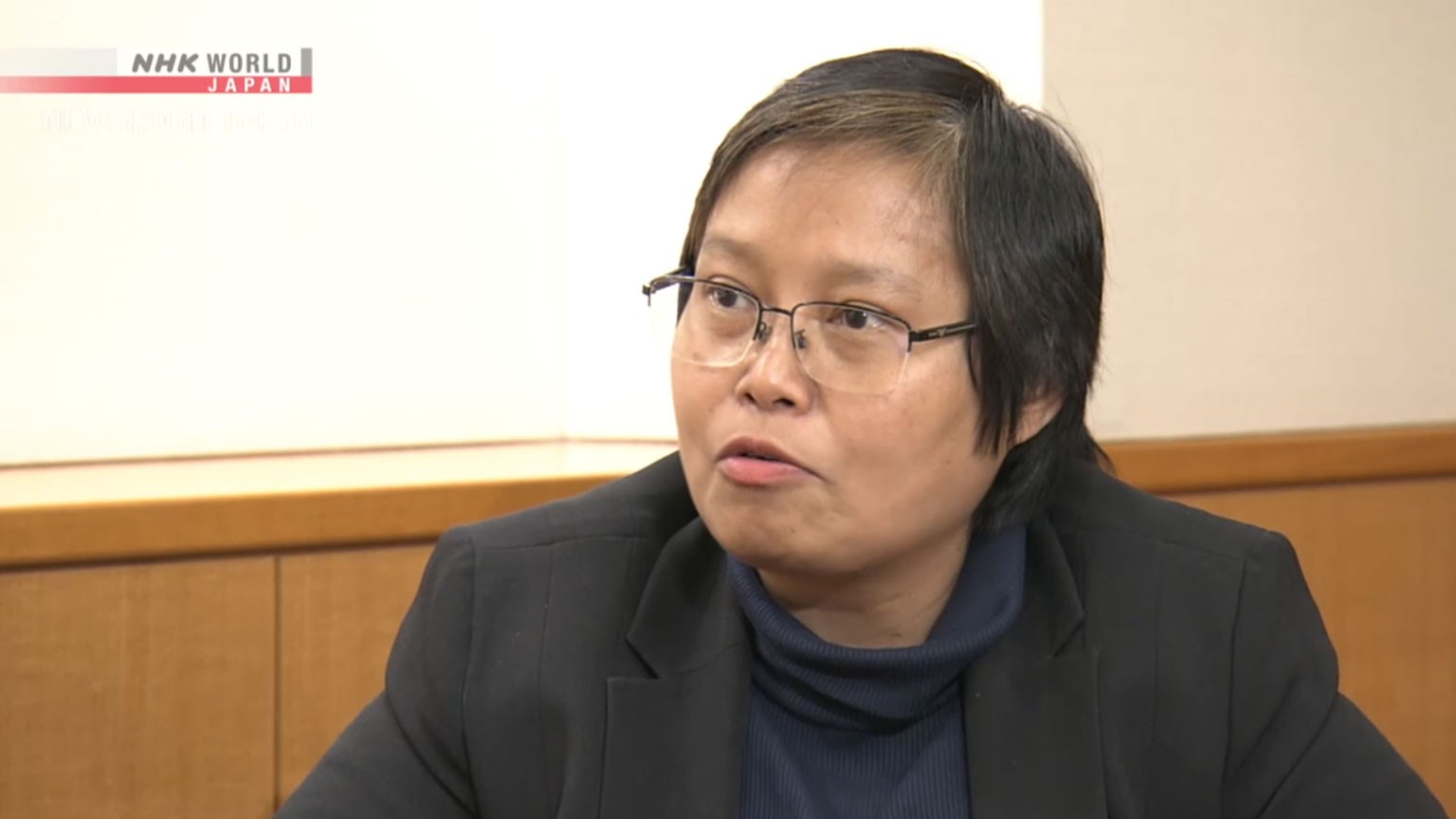Resistance gains ground
Zin Mar Aung told NHK that over a period of one month from late October, the alliance of three ethnic armed organizations captured more than 250 military camps. She attributed the success of the offensive to close coordination between the alliance and federal democratic forces.
"This operation received the popular support [of] the whole country," she said. "The different ethnicities and young people and ordinary people are very much supporting it.
"The fightback has put the junta under a lot of pressure, and it's just getting started. This is only the first wave."
"China is very cautious"
Myanmar's military and an alliance of ethnic armed groups agreed in January to a temporary ceasefire under China's mediation. But the plan suffered a setback when the alliance of anti-government forces accused the military of shelling its positions the day after the agreement was struck.
In early January, shells fired by the military crossed the northern border and landed in Zhenkang, a county in Yunnan Province. The stray fire wounded five people, and prompted an angry response from Beijing. In turn, the Myanmar military accused China of siding with anti-junta forces.
Zin Mar Aung dismissed the idea that Beijing has been taking sides. "China is very cautious about getting involved in Myanmar's domestic affairs," she said. "That is why the military junta and their supporters are frustrated." China's real concern, she said, was that its own people may be affected — if the fighting continued to spill over Myanmar's borders.
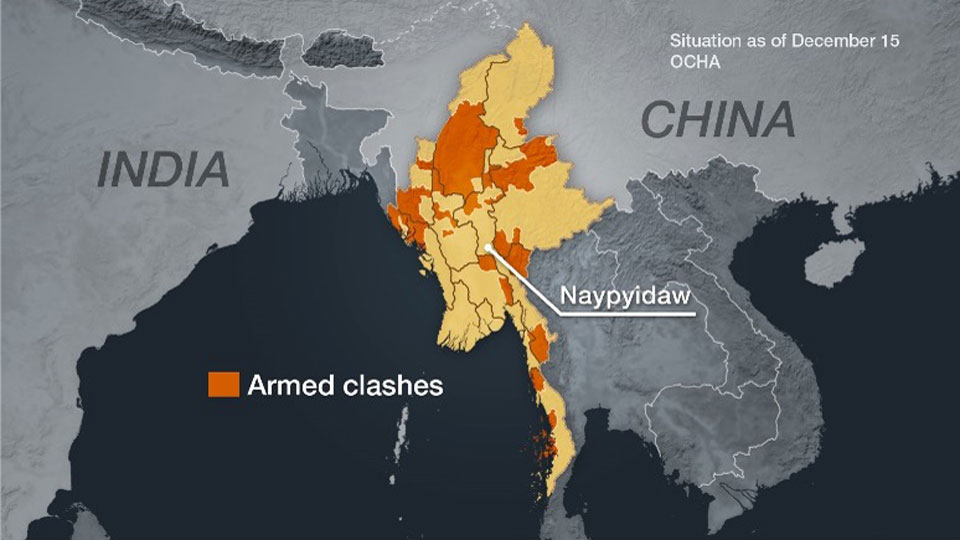
The next step
The National Unity Government is already looking ahead to life after the junta. It has released plans to install a democratic constitution that would provide for a federal power to oversee the states, each of which would have its own legislative, executive, and judicial powers.
Crucially, the new constitution would not be an amendment of the one introduced in 2008, Zin Mar Aung told NHK. "We already tried to amend the constitution within [the military's] own system, but it didn't happen, and the result was the coup," she said. A fresh start would offer the only clear way forward.
But first — the all-important task of vanquishing the junta: "Until we remove the military, how can we have democracy?"
A long fight for change
Zin Mar Aung's fight for democracy goes back decades. She was a key figure in the "88 Generation," a group of activists who held pro-democracy demonstrations in 1988. For her involvement in these rallies, she was arrested and jailed for 11 years. The long period in detention didn't dampen her fire. On release, she returned to political activism, and many years later, in 2015, she was elected to parliament. Her time as a lawmaker came to an abrupt end in 2021, when the military seized power.
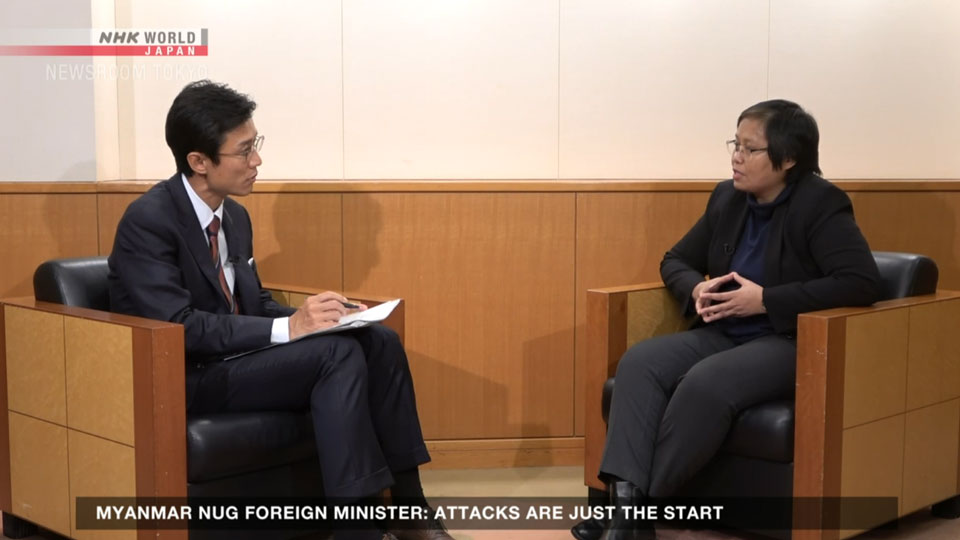
The risk for pro-democracy advocates in Myanmar is that their long struggle may be forgotten beyond their borders, a victim of global media fatigue, or overshadowed by conflicts elsewhere in the world.
"Initially I was worried [about this]," said Zin Mar Aung. "But gradually we realized that our movement does not depend on the international community and international assistance. Actually, our movement is homegrown and very much depends on our own people, so that is fine. Now one year, two years, almost three years — we are still resilient and people still have a strong belief that we will win. The international community now recognizes that our revolution is one that has potential to be successful for democracy."
Global support makes a difference
The support of the outside world can still make a difference to the cause, Zin Mar Aung told NHK.
"If the international community can provide effective humanitarian assistance, that will be very helpful for us, especially for civilians," she said. "Another thing is to use targeted and effective economic sanctions against the military junta and its supporters. Unfortunately, the international response in these areas has been very slow."
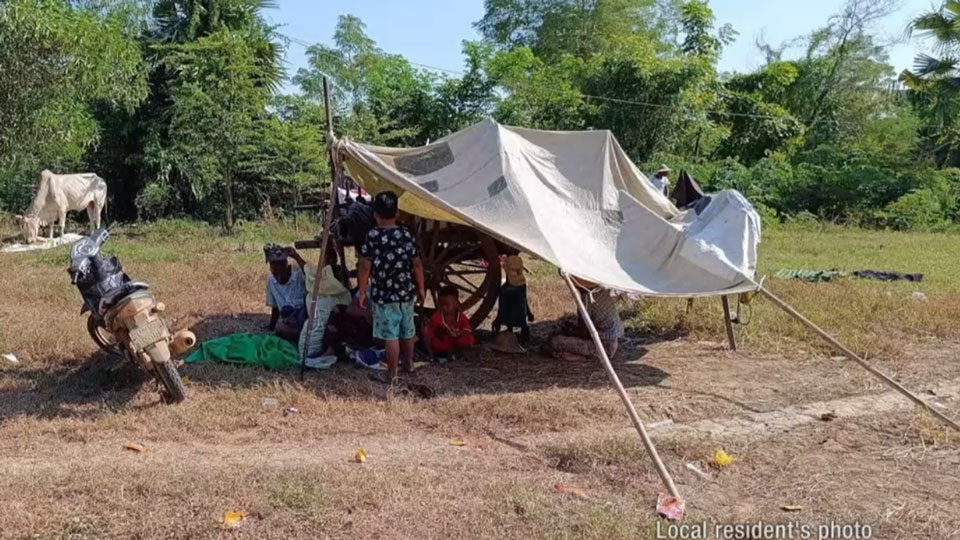
Efforts by the 10-member Association of Southeast Asian Nations to de-escalate the crisis in Myanmar haven’t succeeded. Months after the 2021 power grab, leaders from the bloc agreed with Myanmar military generals to implement a so-called five-point consensus which called for, among other things, an immediate end to the violence and dialogue among all parties. In the ensuing years the bloodshed has dramatically increased, together with claims that the army has conducted numerous war crimes against civilians.
"We know the five-point consensus is not enough," said Zin Mar Aung. "It was agreed to by the coup leader, Ming Aung Hlaing. So he needs to take accountability and implement it. If there is no implementation, and if there is no progress, it is a weakness of the ASEAN charter itself that there is no accountability mechanism."
"It is a test of the political will of the ASEAN members, and of course ASEAN supporter countries in the region, if they can apply enough pressure to make effective progress to implement the consensus."
"If our neighboring countries can apply more pressure, that will be really, really effective. China, India and of course Thailand. Thailand is one of the leading members of ASEAN and its position is critical for our people and for our cause."
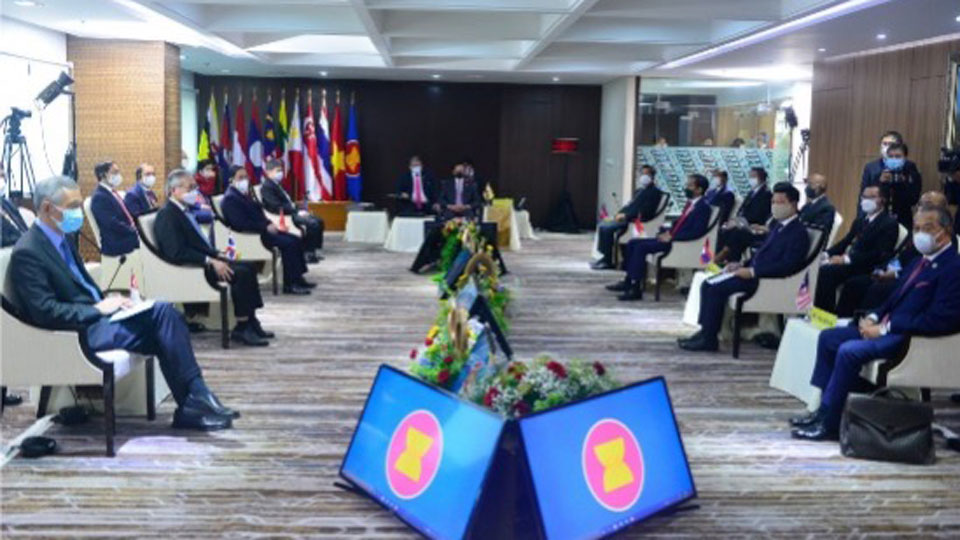
Japan's position
In 2021, Japanese lawmakers backed a resolution calling on Myanmar to quickly restore democratic rule. But the government has been reluctant to go further. Japan remains the only G7 country that has not hit the junta with sanctions.
Zin Mar Aung said it's time for Japan to reflect on where it stands. "I really appreciate that the Japanese parliament requested a stop to the violence against the people, the release of the political prisoners and the restoration of democracy. [But] it has been two years. If there is no progress, what will be next? I think it is the time for Japan and the international community, of course, to put another round of pressure on the military junta."
